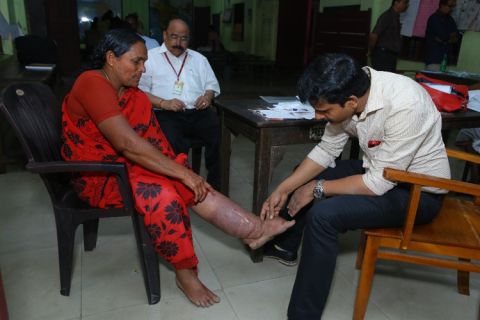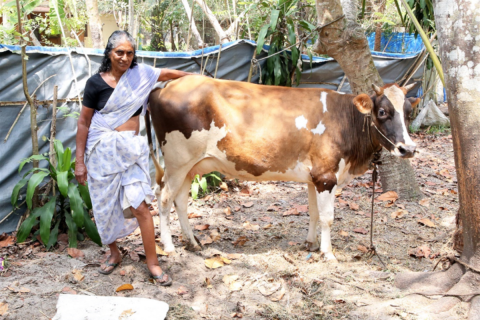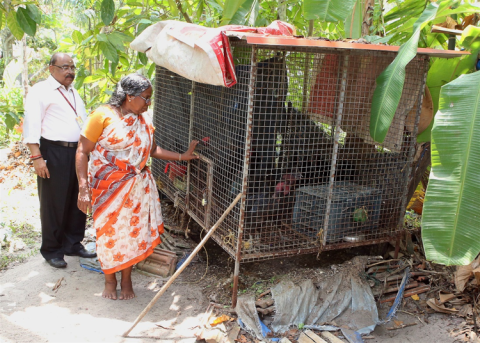Filariasis, my RSTMH Small Grant and improving lives in rural India
The opportunity to engage in a process that will help alleviate the suffering of people has been the impetus that has driven me to pursue a career in Medicine. I like to view research as a tool which will help me better understand the issues that burden the lives of the populace and help incorporate relevant, simple solutions which will make their lives better.
The social cost of filariasis to women

Filariasis is a disabling, disfiguring Neglected Tropical Disease and the brunt of infections are borne by women. Often it affects their family life, as men are unwilling to marry a girl with elephantoid legs, impairing women’s economic prospects for the future. As the disease process is slow, it can develop few years after marriage. The lives of women with filariasis in rural India are miserable.
It is not uncommon for husbands to desert their wives due to the condition and we have heard of instances where such victims are manhandled by their spouse after getting the household chores done. Often, their husband’s desertion may be a better option, as many hang on for financial stability for themselves and their children, making their lives a circle of abuse and fear.
The plight of these affected women motivated me to do something. A novel project in rural Cherthala, India, run by a world-renowned veteran in this field Dr K. N. Panicker, to transform the life of people affected, came to my attention and I saw an opportunity to get involved thanks to the grant. The approach is very innovative and involves treatment and rehabilitation with income generating projects to ensure financial security.
Monitoring quality of life improvement with my Small Grant

Currently there are around 20 women successfully engaged in various income generating activities as a part of this project in rural Cherthala, reporting that they are no longer dependent on their spouses or sons for their routine financial needs.

There are women who proudly say that they take care of the educational expenditure of their children or support their families with the income generated. What a change! The preliminary assessment has revealed that there is a considerable improvement in their quality of life. With the small grant, I am quantifying the improvement in their quality of life. Subject to securing future funding for the project, I see making this NTD field my career. I am so happy and grateful to RSTMH for supporting me at this crucial moment in my career and I hope this project can be a model for Morbidity Management and Disability Prevention of Lymphatic Filariasis at a global level.